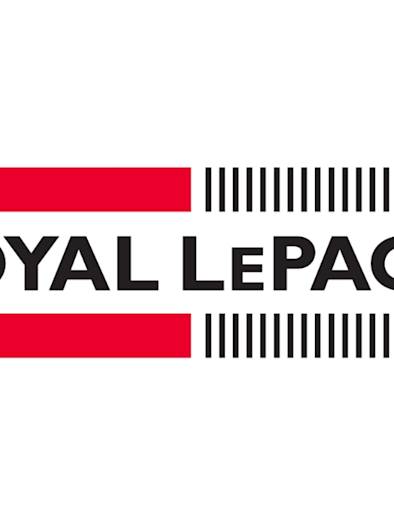
Insights+ Three essential communication strategies for virtual banks in Hong Kong
As Asia continues to fight the coronavirus epidemic, many businesses have told their employees to work remotely in order to limit social contact and inhibit the spread of the virus. This measure has transformed working from home, which is normally a nice perk for employees, into the new norm. With millions of people spending more time at home, remote office communication services such as Alibaba’s DingTalk, which, for example, had tens of millions of enterprises and nearly 200 million people using the app on February 3, have seen a surge in demand. Furthermore, with many people now refusing to visit shops, banks and other public spaces we have seen a growing need for digital services, including virtual banking.
Even before the epidemic, virtual banking was changing the banking landscape in Hong Kong. Virtual banks aim to promote financial inclusion by delivering banking services to customers including individuals or small and medium enterprises (SMEs) through a mobile app or other electronic channels instead of physical branches.
Are the pain points in banking painful enough?
I attended last year’s Hong Kong Fintech Week, where a number of industry players, regulators and key opinion leaders (KOLs) discussed virtual banking. One speech left a lasting impression: PingAn OneConnect Bank’s Chief Executive Ryan Fung said that the major challenge for virtual banks in Hong Kong at present is “the pain points [in traditional banking] are sometimes just not painful enough for Hongkongers.” I couldn’t agree more.
One of the main concerns for people in Hong Kong is cybersecurity. A 2018 study by US-based Identity Theft Resource Center found that financial services companies are 300 times more likely to face cybersecurity incidents than companies in other industries. If you also factor in that the well-established traditional banking system methods that are so ingrained into Hong Kong society, Hong Kong customers are possibly the most reluctant group compared to other markets in the region, especially mainland China, to move their banking online. According to Wirecard’s 2019 Digital Payments Landscape report, the adoption rate of digital payment is still low in Hong Kong compared to other peer markets. The report highlighted that the majority of shoppers in Hong Kong pay using cash (88%), closely followed by the Octopus smart card (85%) and credit card (81%) payments. However, with the outbreak of the coronavirus, the pain points for traditional banking services have become literally painful, which is benefiting digital banking services.
Virtual banking in Hong Kong
In September 2017, the Hong Kong Monetary Authority (HKMA) launched a number of smart banking initiatives, including the introduction of new virtual banking licenses for non-traditional financial services providers. Between March to May of 2019, the HKMA granted eight virtual banking licenses to fintechs backed by large tech companies such as Ping An, ZhongAn, Tencent, Xiaomi, Ant Financial and more, further positioning Hong Kong as a leading international financial center.
Communication strategies for virtual banks
In Hong Kong’s congested virtual banking market, it is extremely important for virtual banks to distinguish themselves from their peers.
Here are three essential communication strategies for virtual banks to follow to help them tap the huge potential of Hong Kong’s virtual banking market.
– Firstly, “I recognize you because you are different” – Currently, only ZA Bank has launched its trial services in Hong Kong. To date, there has been no official word from the other virtual banks on when exactly they plan to launch their services, which means the virtual banks will need to compete for exposure and awareness in a crowded market. But generating noise about services isn’t the most important thing. The virtual banks need to differentiate themselves from each other. For example, WeLab is unique because it is the only virtual bank founded in Hong Kong. Fusion Bank talks about leveraging WeChat, which is a multi-purpose messaging app with over 1 billion monthly active users and hits 1 billion transactions per day for WeChat payments. Each virtual bank needs to come up with a core message that makes it stand out from the crowd, rather than repeating the same messages: “Fast, convenient, 24 hours, etc.” and boasting about the same technology: “AI, eKYC, Bio-metrics.”
– Secondly, “I choose you because you are trustworthy” – Virtual banks need to show potential Hong Kong customers that data and money are secure online. “Safety First” is the message I suggest virtual banks emphasize consistently, as that’s the key to winning over customers and building a healthy industry environment in the long run, rather than engaging in a price war with competitors over interest rates. For example, show customers that virtual banks undergo the same strict regulations as traditional banks, use examples to illustrate that virtual banks have the most secure technology and showcase strengths in cyber security, etc. All of these can help ease concerns of potential customers and build confidence.
– Lastly, don’t forget other key stakeholders. Stakeholder engagement is crucial for virtual banks, as stakeholders have a lot of influence in Hong Kong. Key stakeholders include media, authorities, business associations, lobby groups, think tanks in fintech, KOLs and universities/education institutes, etc. Any endorsement or recognition from them can help with virtual banks’ credibility and brand image.
Bright future for virtual banking, financial technology
The coronavirus is presenting virtual banks in Hong Kong with a watershed moment. The epidemic is a wake-up call which will prompt new needs, new business models and new lifestyle choices, and all of this points to a huge market potential in virtual banking, along with financial technology. The unique advantage of having the Greater Bay Area next door and the increased efforts made by the government and local authorities to strengthen the construction of the fintech ecosystem mean the territory is expected to be at the forefront of the sector in the coming years.
Doris Zhao is an Account Director in Financial Communications at Hill+Knowlton Strategies Hong Kong
Andrew Scott is an Editor / Writer at Hill+Knowlton Strategies Hong Kong







